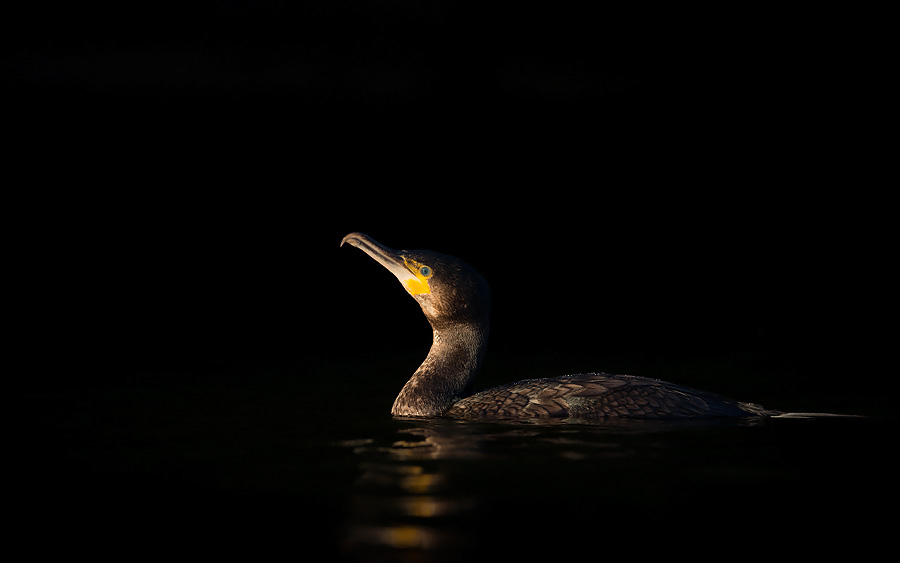
On Saturday afternoon I watched a Cormorant with a fish off Dawlish Warren.
The Cormorant had the fish in its beak and was trying to swallow it. It looked as though it had bitten off more than it could chew, or at least caught more than it could swallow. Have you ever done that?
I’m not sure what the fish was. It was a round fish, not a flat fish, and it about a foot long and seemed about eight inches from belly to back. It was quite silvery in colour with some noticeable red on its dorsal and ventral edges. I know that’s not a very good description! In my quick romp around the internet then it looked quite like a black sea bream – but with a bit more obvious red on it. But I don’t really ‘do’ fish. I’d be grateful for any informed comments!
It seemed a big fish for the Cormorant to swallow and it had several goes as I watched. Then a young Herring Gull (see – I can do gulls! (some gulls)) landed near the Cormorant and started watching – so I watched the Cormorant, its dead fish and the young Herring Gull (maybe somebody was watching me too – I wouldn’t have known).
I wondered whether the Herring Gull had spotted the cormorant having trouble with the big fish and was banking on getting some of the action. I thought it might be on to a winner there.
But after a couple of minutes, and two or three more attempts by the Cormorant to swallow its fish, the gull flew off. I wondered whether it had made the wrong decision as, to my eye, the Cormorant wasn’t making any progress at all with the fish. I was wondering whether it would soon give up.
And then, on what might have been the twentieth attempt that I had seen, the Cormorant swallowed the fish easily and with no delay or any fuss.
Why had it taken so long? Why was it, in the end, so easy? Had the herring Gull seen that the Cormorant had almost perfected its technique. What sort of fish was it? How many fish do Cormorants eat each day?
All sorts of questions occurred to me – as they always do when I watch nature closely.
Only one of those questions is answered in this rather impressive information source from the EU on Cormorants which I came across by accident, but enjoyed reading. I bet UKIP wouldn’t give us this if we left the EU…
[registration_form]
Mark, could it have been Couch’s Sea Bream rather than a Black Bream?
Chequertree – I think it could easily have been. Is that possible or more likely?
Black Bream is the most common, but in the South West there are quite a few other species including Couch’s and Red. Being on the Kent coast I’m only ever likely to encounter Black so no expert. Shame you didn’t get a photo!
Or Red Bream…
I did read somewhere that they are not water repellant like other birds hence the reason they have to dry out. The advantage of getting completely wet through means they can completely submerge without buoyancy enabling them to catch fish without restriction. So I presume they can and will hunt out the bigger fish. Bigger fish means more food/energy and in turn means less diving/drying out. So maybe the cormorant you saw was a young one starting to work this out for the first time. Maybe a right of passage all cormorants have to go through if they are to survive past their early years?
I “do fish” Mark…if you look at a photo of sea bream you will see that they have a jaggy edged dorsal fin which folds up when stretched in one direction – possibly your cormorant was trying to avoid a nasty scratch and positioning the bream before swallowing?
Dick – it did have that jaggy edged dorsal fin – but the Cormorant seemed to have got that bit sorted out pretty quickly. It just seemed at the limit of being small enough to swallow.
It’s provocative to post this to Angling Trust as they seem to have a policy of getting rid of everything that eats fish. I have never seen any reference to discussion between nature groups and AT, although I hope those anglers who appreciate seeing all that nature offers are keeping a balance in AT discussions. I for one am longing to see an otter while I fish. Cormorants are thought (by some anglers) to decimate inland fisheries; more accurate info on their intake would be useful.